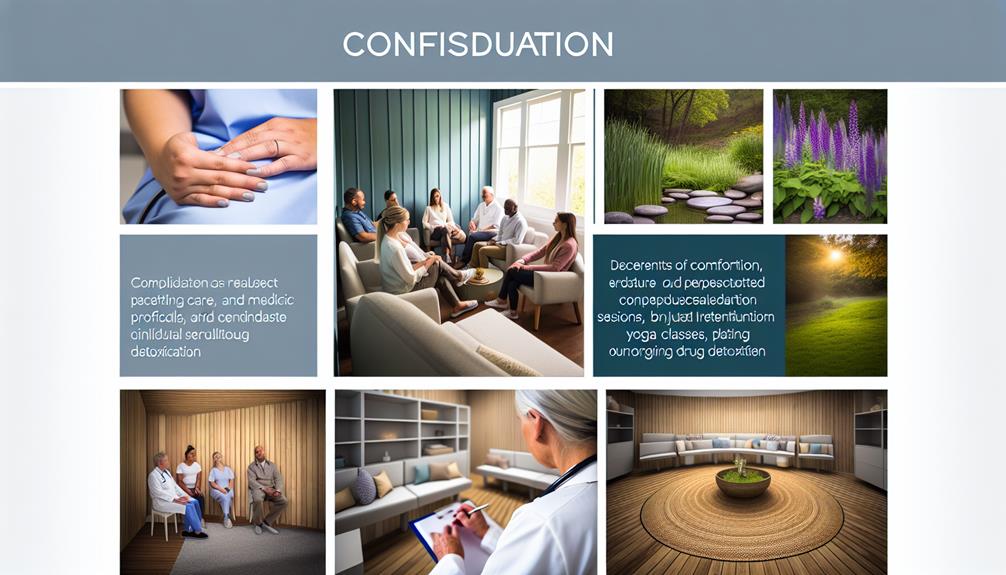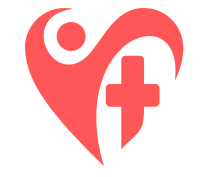You've finally reached a point where you're ready to break free from the grip of addiction. Drug detoxification is the crucial first step towards reclaiming your life and achieving lasting recovery. But what exactly does it entail? In this discussion, we will explore the importance of drug detoxification, the different methods available, the benefits of professional programs, how to manage withdrawal symptoms, and the vital role of aftercare and support. So, if you're ready to embark on this transformative journey, buckle up and prepare for a comprehensive exploration of drug detoxification.
Importance of Drug Detoxification

If you are struggling with drug addiction, drug detoxification is an essential step towards your journey to recovery. The importance of early intervention cannot be emphasized enough when it comes to drug detoxification. When you address your addiction at an early stage, you increase your chances of successful recovery and minimize the long-term effects of drug use.
Early intervention in drug detoxification allows for prompt medical attention and supervision, ensuring your safety and well-being during the withdrawal process. The process of detoxification helps your body eliminate toxic substances, clearing the path for further treatment and rehabilitation. It is crucial to understand that the longer you wait to seek help, the more damage your body may experience due to prolonged drug use.
Additionally, early intervention in drug detoxification can prevent irreversible damage to your physical and mental health. Research shows that long-term drug use can have severe consequences, such as organ damage, cognitive impairments, and mental health disorders. By addressing your addiction early on, you have a better chance of minimizing these long-term effects and restoring your overall health.
Different Methods of Drug Detox
When it comes to addressing your drug addiction and embarking on the path to recovery, understanding the different methods of drug detox can be vital. Detoxification is the process of removing toxins from your body and helping you manage withdrawal symptoms. Here are four different methods of drug detox that you may consider:
- Medical Detox: This method involves receiving medical supervision and possibly medication to help manage withdrawal symptoms. It is often done in a hospital or specialized detox facility.
- Natural Alternatives: Some individuals prefer natural methods to support their detoxification process. These may include herbal remedies, acupuncture, or meditation. While there is limited scientific evidence supporting their efficacy, some people find them helpful.
- Holistic Detox: This approach takes a holistic view of detoxification, focusing on the mind, body, and spirit. It may involve a combination of medical and natural methods, along with therapies like yoga or art therapy.
- Rapid Detox: This method involves being sedated and receiving medication to speed up the withdrawal process. It is typically done under medical supervision and can help individuals avoid experiencing severe withdrawal symptoms.
It's important to note that the long-term effects of drug detoxification can vary depending on factors such as the substance used, individual biology, and the specific detox method chosen. It is crucial to seek professional guidance and support throughout the detox process to ensure a safe and effective journey towards recovery.
Benefits of Professional Drug Detox Programs

Professional drug detox programs offer a range of benefits that can greatly support individuals on their journey towards recovery from drug addiction. These programs are designed to provide a safe and supervised environment where patients can undergo detoxification under the care of medical professionals. One of the key benefits of professional drug detox programs is their ability to address the long-term effects of drug addiction.
Drug addiction can have serious and lasting impacts on both the physical and mental health of individuals. Professional drug detox programs focus not only on the immediate withdrawal symptoms but also on addressing the underlying causes of addiction and the potential long-term effects. By providing comprehensive care and support, these programs aim to minimize the risk of relapse and promote long-term recovery.
Studies have shown that professional drug detox programs have higher success rates compared to self-detoxification or quitting drugs without medical supervision. The structured and evidence-based approach of these programs, combined with the expertise of healthcare professionals, increases the likelihood of successful detoxification and sustained recovery.
Additionally, professional drug detox programs offer a range of additional benefits. These may include access to counseling and therapy services, peer support groups, and aftercare programs to help individuals maintain their sobriety even after completing the detoxification process.
Managing Withdrawal Symptoms During Detox
After addressing the long-term effects of drug addiction, the next crucial step in professional drug detox programs is effectively managing withdrawal symptoms during the detoxification process. Withdrawal symptoms can be challenging and uncomfortable, but with the right strategies in place, you can successfully navigate this phase of your recovery journey. Here are four key approaches to help you manage withdrawal symptoms and increase your chances of a successful detox:
- Medication-Assisted Treatment (MAT): This approach involves the use of medications, such as methadone or buprenorphine, to alleviate withdrawal symptoms and cravings. MAT can help stabilize your body and reduce the risk of relapse during detox.
- Behavioral Therapy: Engaging in therapy sessions with a trained professional can provide you with the necessary tools to cope with withdrawal symptoms. Cognitive-behavioral therapy (CBT) and contingency management are effective approaches that can help you develop relapse prevention strategies and address underlying psychological issues.
- Holistic Approaches: Incorporating holistic practices, such as yoga, meditation, and acupuncture, into your detox program can help alleviate withdrawal symptoms by promoting relaxation, reducing stress, and improving overall well-being.
- Supportive Environment: Surrounding yourself with a supportive network of friends, family, and professionals can greatly enhance your detox experience. Having a strong support system can provide you with encouragement, guidance, and accountability throughout the process.
Aftercare and Support Following Drug Detox

Following drug detox, it is essential to establish a comprehensive aftercare plan and access ongoing support to maintain your recovery journey successfully. Long-term recovery strategies are crucial in preventing relapse and maintaining sobriety. After completing detox, it is important to continue engaging in treatment and support services to address the underlying causes of drug addiction and develop effective coping mechanisms.
One effective strategy is to participate in community-based support networks. These networks provide a sense of belonging and understanding among individuals who have gone through similar experiences. They offer a safe space to share struggles, seek advice, and receive encouragement. Support groups like Narcotics Anonymous (NA) and Alcoholics Anonymous (AA) provide peer support and accountability, helping you stay committed to your recovery goals.
In addition to support networks, it is vital to explore other long-term recovery strategies. These may include individual counseling, therapy, and holistic approaches such as meditation or yoga. Developing healthy habits, engaging in positive activities, and building a strong support system of family and friends can also contribute to sustained recovery.
Frequently Asked Questions
How Long Does Drug Detoxification Typically Take?
Drug detoxification typically takes several days to a few weeks. During this process, your body eliminates the drugs and you may experience withdrawal symptoms. It's important to seek professional help for a safe and successful detox.
Can I Detox From Drugs at Home Without Professional Help?
Detoxing from drugs at home without professional help can be risky. It's important to consider the potential dangers of self-detox, such as withdrawal symptoms and complications. Seeking professional guidance ensures a safer and more effective detoxification process.
Are There Any Long-Term Side Effects of Drug Detoxification?
There can be long-term side effects of drug detoxification. It may have a psychological impact, affecting your mental health in the long run. It can also have physical health implications, potentially affecting your body after detoxification.
What Happens if I Relapse After Completing a Drug Detox Program?
If you relapse after completing a drug detox program, it's important to remember that setbacks happen. Reach out for support, utilize relapse prevention strategies, and develop coping skills to manage cravings. Stay strong and don't give up.
How Can I Support a Loved One Going Through Drug Detoxification?
To support a loved one going through drug detoxification, offer emotional support by listening, encouraging, and being understanding. Help them seek professional help for their detox process to ensure their safety and success.



